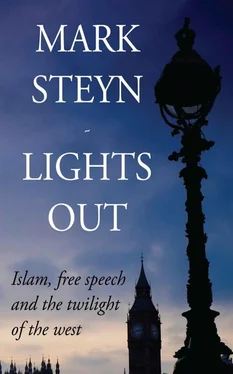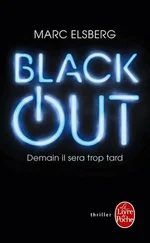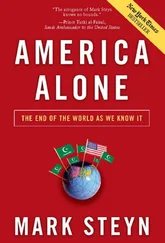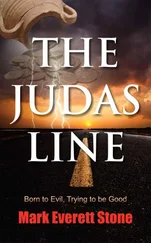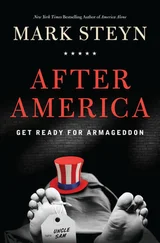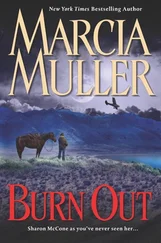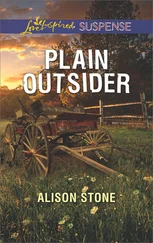No, the western jurisdiction in which the Danish cartoons have most comprehensively demonstrated the constraints on free expression is our own decayed Dominion: only in Canada have the commissars of the state launched an official investigation for the alleged “crime” of publishing the cartoons. Last week, sitting across the table from Shirlene McGovern, Ezra Levant launched into an impassioned denunciation of his interrogation. He took the quaint view that his “freedom of expression” was not the generous if qualified gift of Trudeaupian bureaucrats but his inalienable right and one bolstered in this country by 800 years of English Common Law as well as more modish innovations such as the 1946 UN Universal Declaration on Human Rights. Canada likes that last one so much it sticks it on the back of the $50 bill, even though we are in sustained and systemic breach of its provisions on free expression. Yes, yes, I know: so are Sudan and North Korea, but come on, is that really the league you want to play in?
In the course of his interrogation, Mr Levant also pointed out that the time and money Canada’s “human rights” pseudo-courts cost publishers has a broader “chilling effect” – on all the stories that will never see the light of day because at the back of some editor’s mind is the calculation of the expense of fending off Shirlene McGovern. And, at the end of this exchange, Agent McGovern, licensed to chill, looked blandly across the table and shrugged:
You’re entitled to your opinions, that’s for sure.
No, sorry. That cliché is no longer operative in Canada. Today you’re only entitled to your opinions if Agent McGovern says you are – “for sure”. Ezra Levant was of the opinion that he should publish the Danish cartoons. That opinion is now on trial. Ken Whyte, the executive honcho at Maclean’s , was of the opinion he should publish an excerpt from my book. That opinion comes up for trial at the British Columbia “Human Rights” Tribunal in June, and at the Canadian “Human Rights” Tribunal shortly thereafter, and most likely at the Ontario “Human Rights” Tribunal a little way down the road.
Because I’ve always been opposed to “human rights” commissions in theory (I like proper courts with things like “due process”), I failed to appreciate until Maclean’s present predicament how much worse they are in practice. These commissions were supposedly intended to investigate discrimination in housing and the like, but then came the very poorly drafted Section 13, which makes it a crime to communicate anything electronically “likely to expose a person or persons to hatred or contempt”. “Likely”, eh? What does that mean? Well, according to the key determination, subsequently endorsed by the Supreme Court, in Canadian legalese “likely” now means “highly unlikely”. That’s to say, notwithstanding the absence of any evidence by the plaintiffs of anyone at all ever having been exposed to actual hatred or contempt, nor even any coherent argument as to why there is a hypothetical possibility of someone unspecified being exposed to theoretical hatred or contempt in the decades ahead, a commission can still deem such hatred or contempt “likely”.
In the three decades of the Canadian “Human Rights” Tribunal’s existence, not a single “defendant” has been “acquitted” of a Section 13 crime – except for something called the “Canadian Nazi Party”, a complaint against whom was dismissed on the grounds that there was no evidence any such “Canadian Nazi Party” actually existed. But, if you do happen to exist, the odds are a lot tougher. Would you bet on Maclean’s bucking this spectacular 100 per cent conviction rate? “Sentence first, verdict afterwards,” declares the Queen in Alice In Wonderland . Canada’s not quite there yet, but at the “Human Rights” Commission, it’s “Verdict first, trial afterwards”. So I’m guilty and Ken Whyte’s guilty and Maclean’s is guilty because that’s the only verdict there is.
Who has availed themselves of the “human rights” protected by Section 13? In its entire history, over half of all cases have been brought by a sole “complainant”, one Richard Warman. Indeed, Mr Warman has been a plaintiff on every single Section 13 case before the federal “human rights” star chamber since 2002 – and he’s won every one. That would suggest that no man in any free society anywhere on the planet has been so comprehensively deprived of his human rights. Well, no. Mr Warman doesn’t have to demonstrate that he personally has been deprived of his human rights, only that it’s “likely” (ie, “highly un-“) that someone somewhere will be deprived of some right sometime.
Who is Richard Warman? What’s his story? Well, he’s a former employee of the Canadian “Human Rights” Commission: an investigator. Same as Shirlene McGovern.
Isn’t there something a little odd about a supposedly indispensable Canadian “human rights” system used all but exclusively by one lone Canadian who served as a long-time employee of that system? Why should Richard Warman be the only citizen to have his own personal inquisition? You can hardly blame the Canadian Islamic Congress and the Islamic Supreme Council of Canada and no doubt the Supreme All-Powerful Islamic Executive Council of Swift Current, Saskatchewan, for belatedly figuring they’d like a piece of the human rights action.
In a free society, justice must not only be done, but must be seen to be done. And when you see what’s being done at the CHRC it’s hard not to conclude that the genius of the English legal system – the balance between prosecutor, judge, and jury – has been all but destroyed. The American website Pundita has a sharp analysis of Section 13, comparing it to Philip K Dick’s sci-fi novel The Minority Report , set in a world in which citizens can be sentenced for “pre-crime” – for criminal acts which have not occurred but are “likely” to. Who needs futuristic novels when we’re living it here and now in one of the oldest constitutional democracies on the planet?
What kind of countries have tribunals with 100 per cent conviction rates that replace the presumption of innocence with the presumption of guilt and in which truth is not only no defence but compelling evidence of that guilt? Consider this statement, part of the criteria by which the star chamber determines when a Section 13 crime has occurred. What does it look for as evidence?
Messages that make use of allegedly true stories, news reports, pictures and references to apparently reputable sources in an attempt to lend an air of objectivity and truthfulness to the extremely negative characterization of the targeted group have been found to be likely to expose members of the targeted group to hatred and contempt.
Read that again slowly. Citing news reports, reputable sources, facts, statistics, documentation, quotations, references, scholarly studies, etc, has been “found” to be clear evidence of your “likely” pre-crime.
Canadians are uncomfortable even confronting what’s going on in their name. On last week’s letters page, Lauren Demaree of Windsor seemed closest to “mainstream” “moderate” Canadian opinion:
Placing limits on free speech is a slippery slope, but that is not the only issue in play here. There is often a fine line that is crossed between opinion and hate propaganda and our laws need to reflect this more effectively. Where do we draw the line? When a group of people is harassed or when someone is beaten? How about killed? When your writer Andrew Coyne sits on a high horse spouting the ideals of free speech, he doesn’t stop and think about the consequences of his words.
Who has been “killed” or “beaten” or “harassed” by Coyne-Steyn “hate propaganda”? The killings and bombings, as Ezra Levant pointed out, occur in countries without freedom of expression – because when you criminalize words the only expression left is action. How sad to see Canada pursuing, as the federal “Human Rights” Commission puts it, “A Watch On Hate”. Not “hate crimes” or even “hate speech”, but just “hate” – thoughts, feelings, emotions. Mohamed Elmasry of the Canadian Islamic Congress is a world-class hater who thinks all Israeli civilians over 18 are legitimate targets for murder. Bully for him. Yet, in Elmasry’s pursuit of Maclean’s , Lauren Demaree sees the hater as the pin-up crusader who’ll abolish hate. No free society can do that. But it can certainly abolish, incrementally, freedom of expression and the presumption of innocence in relentless pursuit of such a banal happy-face chimera. The arbitrary absurdity of Alice In Wonderland ’s Queen yoked to the Cheshire Cat smile. This is your fight, too, Lauren, even if you don’t yet know it.
Читать дальше
